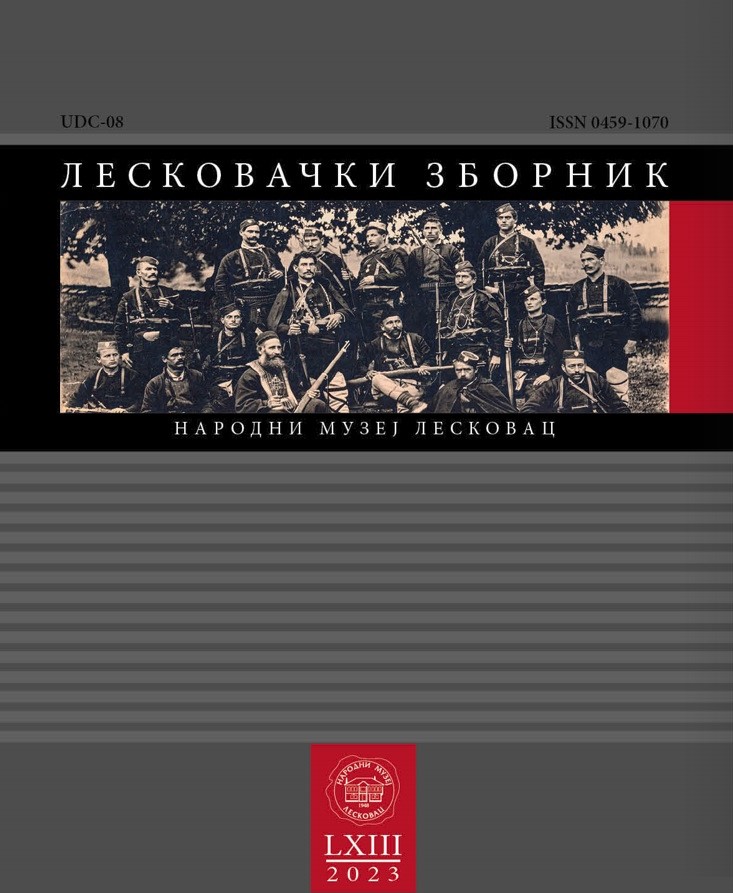Abstract
During the centuries-long Ottoman occupation, the Serbian people faced the discontinuity of statehood, living in the Balkans without their own state and ruler. The aforementioned was reflected in the modernization processes of Serbian society, which, in relation to the countries of Western Europe, began with a significant delay in the 19th century. The struggle for Serbian statehood during the 19th century was very complex and difficult, both because of the position of the Serbian people in the geopolitical knot between the conflicting interests of the great powers, and because of internal political relations and the slow consolidation of institutional and social capacities. The process of Serbia’s political independence continued until 1878, when it gained independence at the Berlin Congress. Although it won its independence, Serbia did not enter a period of peace but faced complex foreign and domestic political processes, which marked the end of the 19th and the beginning of the 20th century. Bearing this in mind, the general hypothesis is that the political processes in Serbia at that time were decisively influenced by external geopolitical actors. Therefore, in our work, we start from geopolitics as a synthetic science within which we define a new sub-discipline, historical geopolitics, which deals with the research, analysis and synthesis of geopolitical motivations, doctrines, plans and interests of historical actors, decoding at the deepest level from their geopolitical behavior the hidden reasons for determining the historical actions, processes or events. In the first part of the paper, we will define historical geopolitics as a sub-discipline of geopolitics, so that in the second and third part of the paper, through the lens of historical geopolitics, we will clearly decode the processes of the birth of the modern Serbian state and the struggle for the survival of Serbian statehood. Using the method of analysis and synthesis, the method of deduction and the geopolitical method, we seek to lay the foundation for further research advances in the context of historical geopolitics.

This work is licensed under a Creative Commons Attribution-NonCommercial-NoDerivatives 4.0 International License.

